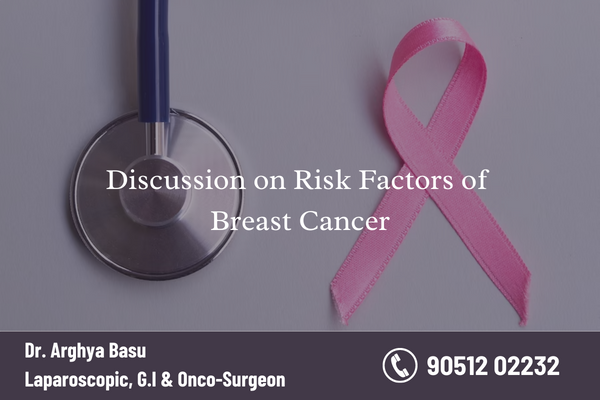Discussion on Risk Factors of Breast Cancer

Breast cancer is the most common form of cancer experienced by women all across the globe. Extensive reports for breast cancer research funding and awareness have created advances in diagnosis as well as treatment. The survival rates have elevated while the number of deaths associated with the disease are declining steadily. Below are a few risk factors for breast cancer. Please check them out now.
Risk Factors
According to a reputed breast cancer doctor , a risk factor makes it more likely for a person to develop a particular disorder. However, having one or even all of the below risk factors does not necessarily mean you will suffer from breast cancer. Many women with no apparent risk factor are also unfortunately diagnosed with breast cancer.
1.
Being Female
Women are more prone to breast cancer than men.
2.
Old Age
Your chances of getting breast cancer increases with age.
3.
A History of Breast Related Conditions
If you already have a number of breast related conditions such as atypical hyperplasia or lobular carcinoma in situ, you have a chance of developing breast cancer too.
4.
A Family History of Breast or Other Types of Cancer
If your mother, daughter, or sister was diagnosed with breast cancer at an extremely young age, your risk of breast cancer increases.
5.
Radiation Exposure
A nbsp;breast cancer doctor said if you have received radiation rays as a young adult or even as a child, you may be diagnosed with breast cancer later in your life.
6.
Obesity
Being overweight or obese increases the risk of breast cancer to a great extent.
7.
Inherited Genes
Many gene mutations that cause breast cancer are passed from parents to their children. The most common mutations are BRCA1 and BRCA2.
8.
Hormone Therapy
Hormone therapy that combines progesterone and estrogen to treat the signs of menopause increases the risk of breast cancer.
If a doctor, after thorough evaluation, found out that you are at a risk of getting breast cancer, he/she may recommend preventive medications or surgery. Estrogen-blocking drugs such as aromatase inhibitors can help though they are accompanied by a wide range of side-effects. Many women choose to remove their healthy breasts through prophylactic mastectomy.